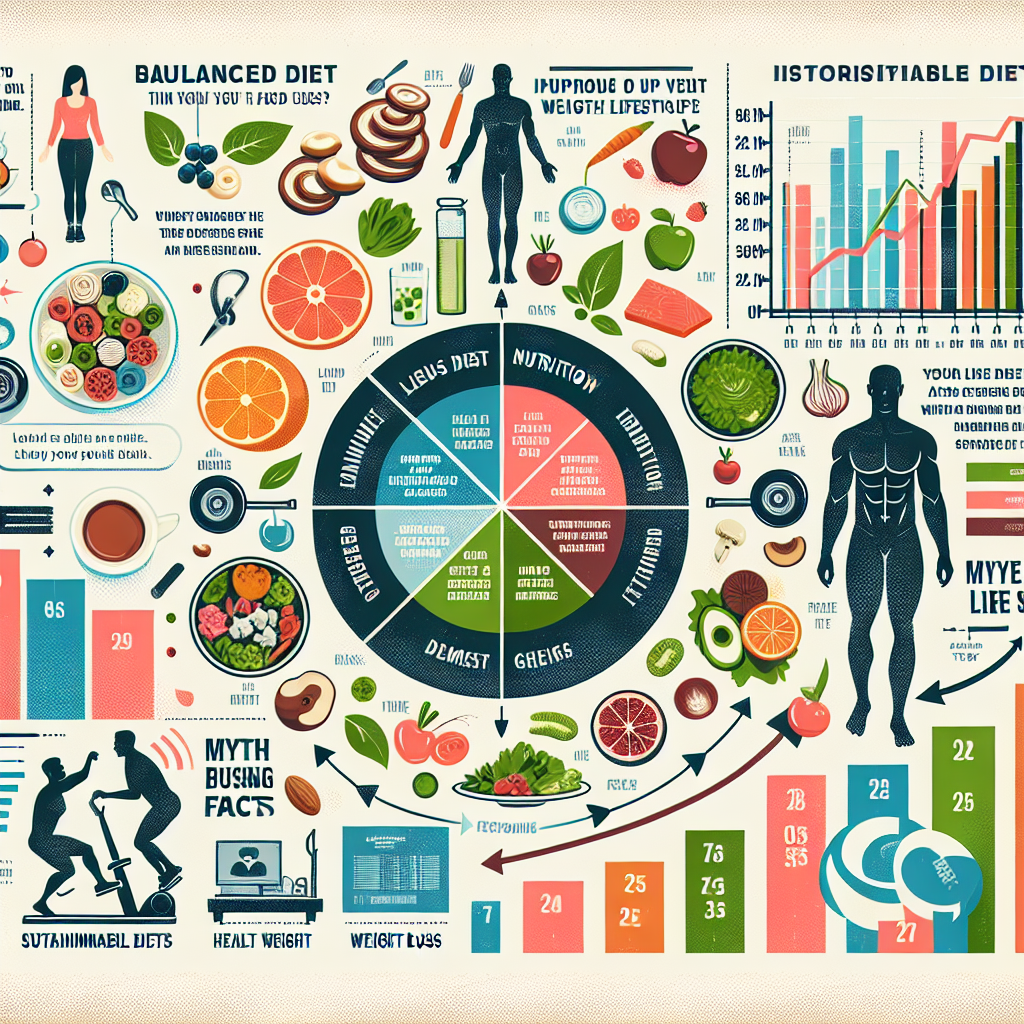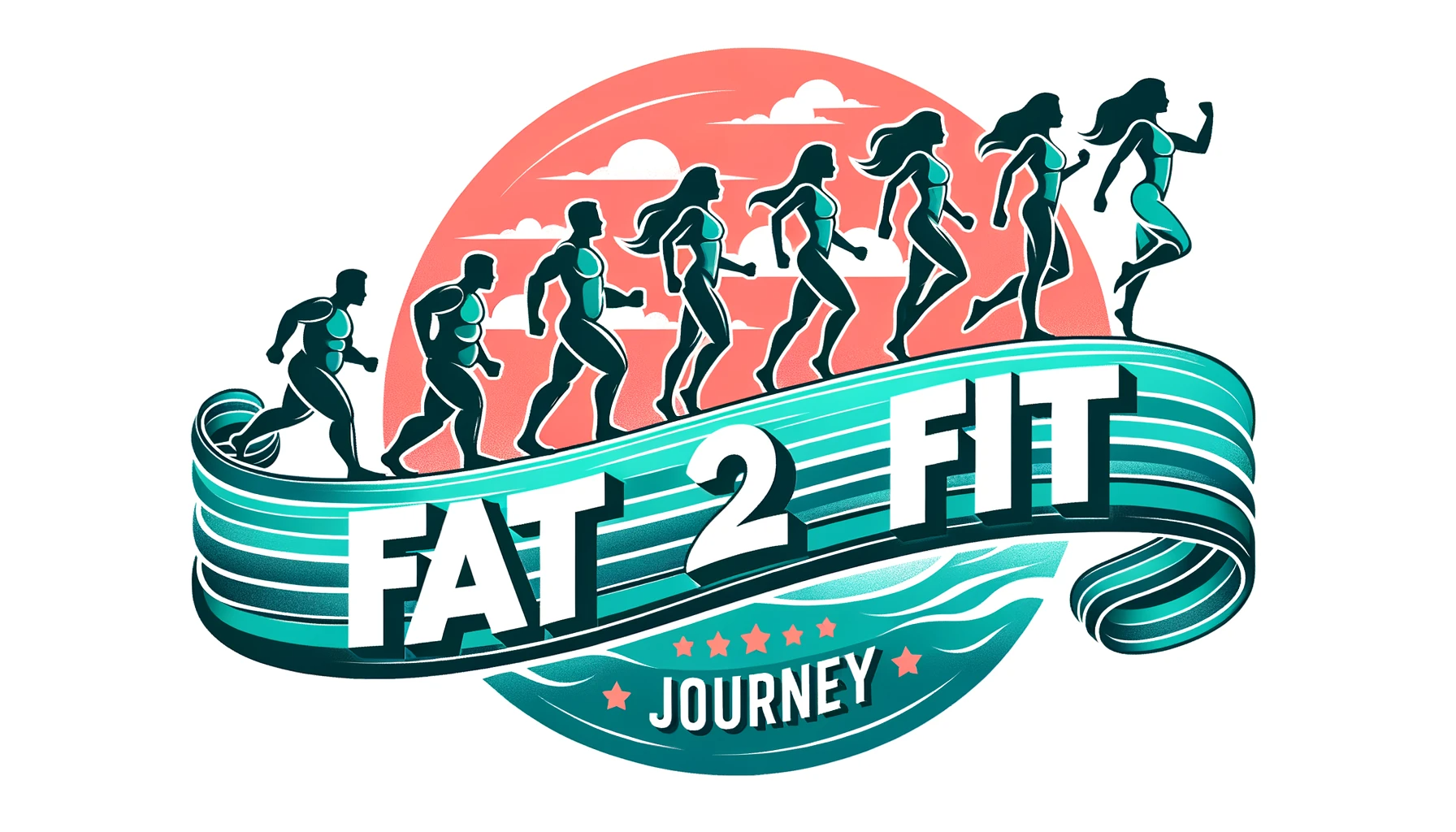Are you looking for effective strategies to achieve your weight loss and nutrition goals? Look no further! In this article, we will explore proven methods to help you shed unwanted pounds and improve your overall health. From making mindful food choices to incorporating regular exercise into your routine, we’ve got you covered. So, if you’re ready to embark on a journey towards a healthier you, let’s get started!
Table of Contents
Understanding Weight Loss and Nutrition
The Importance of Weight Loss
When it comes to weight loss, it’s crucial to understand the importance of maintaining a healthy weight. Excess weight can lead to a wide range of health issues, including heart disease, diabetes, and certain types of cancer. By shedding extra pounds, you can greatly reduce your risk of developing these conditions and improve your overall health and well-being.
The Role of Nutrition in Weight Loss
While exercise plays a significant role in weight loss, nutrition is equally important, if not more so. The food you consume provides the fuel your body needs to function properly, and it directly affects your weight and body composition. By adopting a healthy and balanced diet, you can optimize your nutrition intake and support your weight loss goals.
Setting Realistic Weight Loss Goals
The Importance of Realistic Goals
Setting realistic weight loss goals is crucial for long-term success. Unrealistic expectations can lead to frustration and disappointment, which often results in giving up on your weight loss journey. It’s essential to set achievable goals that are based on your individual circumstances, such as your current weight, lifestyle, and overall health.
Tips for Setting Achievable Goals
To set achievable weight loss goals, it’s important to follow a few guidelines:
- Start small: Begin by setting small, attainable goals that you can work towards incrementally. For example, aiming to lose 1-2 pounds per week is a realistic target.
- Be specific: Clearly define your goals in terms of weight loss, time frame, and any other relevant factors. Specific goals are easier to track and measure progress.
- Have a plan: Outline the steps you need to take to achieve your goals, such as adopting a healthier eating plan and incorporating regular exercise into your routine.
- Stay motivated: Find ways to keep yourself motivated throughout your weight loss journey. This could be through rewards, support from friends and family, or tracking your progress.
By setting realistic and achievable goals, you’ll be more likely to stay committed and achieve long-term success in your weight loss journey.

Creating a Balanced Diet
The Fundamentals of a Balanced Diet
A balanced diet is essential for overall health and weight management. It involves consuming a variety of foods in the right proportions to provide your body with the necessary nutrients. A balanced diet should consist of:
- Lean proteins: These include poultry, fish, tofu, beans, and legumes. They are essential for muscle repair and growth.
- Healthy fats: Sources of healthy fats include avocados, nuts, seeds, and olive oil. These fats provide energy and support hormonal balance.
- Complex carbohydrates: Whole grains, brown rice, quinoa, and sweet potatoes are examples of complex carbohydrates. They provide a steady source of energy and support digestion.
- Fruits and vegetables: These are packed with vitamins, minerals, and antioxidants. Aim for a variety of colorful fruits and vegetables to get a range of nutrients.
- Fiber-rich foods: Fiber helps to keep you feeling fuller for longer and aids in digestion. Examples of fiber-rich foods include whole grains, fruits, vegetables, and legumes.
Importance of Macronutrients
Macronutrients, such as carbohydrates, proteins, and fats, are the main sources of energy for your body. Each macronutrient plays a vital role in weight loss and overall health:
- Carbohydrates: They are your body’s preferred source of energy. Opt for complex carbohydrates like whole grains, as they provide sustained energy and are more nutrient-dense than simple carbohydrates.
- Proteins: They are crucial for muscle repair and growth. Including lean sources of protein in your diet, such as chicken, fish, and legumes, can help you feel full and satisfied.
- Fats: Healthy fats are important for hormone production, brain function, and nutrient absorption. Choose sources like avocados, nuts, and olive oil in moderation.
Balancing these macronutrients in your diet will provide you with the energy you need while keeping you satisfied and supporting weight loss.
Understanding Micronutrients
In addition to macronutrients, your body also requires micronutrients, which include vitamins and minerals, in smaller amounts. These micronutrients play a crucial role in various bodily functions, such as metabolism, immune system support, and cell regeneration. Eating a diverse range of fruits, vegetables, whole grains, and lean proteins will provide you with the necessary micronutrients to support your weight loss journey.
The Role of Fiber in Weight Loss
Fiber is a type of carbohydrate that is not digested by the body, but rather passes through the digestive system relatively intact. It provides numerous benefits for weight loss, including:
- Increased satiety: Foods high in fiber help you feel fuller for longer, which can prevent overeating and snacking between meals.
- Improved digestion: Fiber promotes regular bowel movements and prevents constipation, allowing for the efficient elimination of waste from the body.
- Stabilized blood sugar levels: High-fiber foods have a slower impact on blood sugar levels, helping to prevent spikes and crashes that can lead to cravings and overeating.
Including fiber-rich foods like whole grains, fruits, vegetables, and legumes in your diet can support weight loss and overall health.
Planning Meals and Portion Control
Along with focusing on the quality of your food choices, it’s important to pay attention to portion control. Even healthy foods can contribute to weight gain if consumed in excessive amounts. Consider the following tips for planning meals and controlling portions:
- Create a meal plan: Plan your meals in advance to ensure you’re eating a balanced diet and avoid making impulsive, unhealthy choices.
- Use portion control tools: Use measuring cups, food scales, or visual cues to understand appropriate portion sizes for different types of foods.
- Listen to your body: Pay attention to your body’s hunger and fullness cues. Eat slowly and stop eating when you feel comfortably satisfied, rather than overly full.
By planning your meals and controlling portions, you can create a healthier eating routine that supports your weight loss goals.
Choosing the Right Foods for Weight Loss
Lean Proteins
Including lean proteins in your diet is essential for weight loss, as they are low in fat and high in nutrients. Opt for sources such as skinless chicken or turkey, fish, tofu, beans, and legumes. These protein-rich foods can help you feel full for longer, boost your metabolism, and support muscle growth and repair.
Healthy Fats
Contrary to popular belief, healthy fats can actually aid in weight loss. They provide satiety, help regulate blood sugar levels, and promote healthy hormone production. Include sources like avocados, nuts, seeds, and olive oil in moderation to reap the benefits of healthy fats.
Complex Carbohydrates
Complex carbohydrates are an important source of sustained energy, fiber, and essential nutrients. Opt for whole grains, brown rice, quinoa, and sweet potatoes instead of refined carbohydrates. These complex carbohydrates take longer to digest, keeping you full for longer and preventing blood sugar spikes.
Fruits and Vegetables
Fruits and vegetables are packed with vitamins, minerals, and antioxidants while being low in calories. Including a variety of colorful fruits and vegetables in your diet provides essential nutrients and supports overall health and weight loss. Aim for at least five servings per day.
Superfoods for Weight Loss
Certain foods have gained the reputation of being “superfoods” due to their exceptional nutritional value. Include these superfoods in your diet to boost your weight loss efforts:
- Leafy greens: Kale, spinach, and Swiss chard are rich in vitamins, minerals, and antioxidants. They are low in calories and high in fiber.
- Berries: Blueberries, strawberries, and raspberries are high in antioxidants and fiber. They can satisfy your sweet tooth while providing essential nutrients.
- Greek yogurt: High in protein and probiotics, Greek yogurt can keep you feeling full and support digestion.
- Chia seeds: These tiny seeds are rich in fiber, healthy fats, and antioxidants. They can be added to smoothies, oatmeal, or yogurt for an extra nutritional boost.
Including these superfoods in your diet can enhance your weight loss efforts and promote overall well-being.

Managing Caloric Intake
Understanding Caloric Deficit
To lose weight, you need to create a caloric deficit, which means consuming fewer calories than your body needs for daily activities and functions. This deficit forces your body to tap into its stored fat to meet its energy needs, resulting in weight loss. It’s important to create a moderate caloric deficit to preserve lean muscle mass and ensure long-term success.
Calculating Your Daily Caloric Needs
Determining your daily caloric needs is an important step in managing your weight. Numerous online calculators and formulas can estimate your daily caloric needs based on factors such as age, gender, weight, height, and activity level. Keep in mind that these estimates are not exact, and it may require some trial and error to find the calorie intake that works best for you.
Tips for Reducing Caloric Intake
To reduce your caloric intake without feeling deprived, consider the following tips:
- Increase vegetable intake: Fill your plate with colorful vegetables to add volume and fiber to your meals without adding many calories.
- Choose nutrient-dense foods: Opt for foods that provide essential nutrients while being relatively low in calories, such as lean proteins, whole grains, and fruits.
- Practice mindful eating: Slow down, savor each bite, and listen to your body’s hunger and fullness cues. This can prevent overeating and result in a more enjoyable meal experience.
- Be mindful of liquid calories: Sugary beverages like soda and juice can add significant calories to your diet. Opt for water, unsweetened tea, or other low-calorie options instead.
Reducing your caloric intake while still meeting your nutritional needs is key to successful weight loss.
The Role of Meal Timing
While the total number of calories consumed is the primary factor in weight loss, meal timing can play a supporting role. Consider these tips for optimizing meal timing:
- Don’t skip meals: Eating regular meals, including breakfast, can help stabilize blood sugar levels and prevent overeating later in the day.
- Eat balanced meals: Balance your meals by including protein, complex carbohydrates, and healthy fats. This can provide sustained energy and prevent fluctuations in blood sugar levels.
- Pay attention to post-workout nutrition: Consuming a combination of protein and carbohydrates within 30 minutes to an hour after a workout can support muscle recovery and replenish energy stores.
While meal timing can play a role in weight loss, it’s essential to prioritize creating a caloric deficit through overall reduced calorie intake.
Optimizing Physical Activity for Weight Loss
The Importance of Exercise
Regular physical activity is crucial for weight loss and overall health. Exercise helps to burn calories, increase metabolism, build lean muscle mass, and improve cardiovascular health. It also provides mental and emotional benefits, such as stress relief and improved mood.
Finding an Exercise Routine You Enjoy
To maintain consistency and make exercise a sustainable part of your weight loss journey, it’s important to find activities you genuinely enjoy. Whether it’s dancing, swimming, hiking, or practicing yoga, finding something that brings you joy and keeps you active can make a significant difference in your weight loss efforts.
Combining Cardio and Strength Training
A well-rounded exercise routine should include both cardiovascular exercise and strength training. Cardiovascular exercises, like running, cycling, or brisk walking, help burn calories and improve cardiovascular health. Strength training, such as lifting weights or bodyweight exercises, builds lean muscle mass and increases metabolism, which aids in weight loss.
Incorporating High-Intensity Interval Training (HIIT)
High-Intensity Interval Training (HIIT) is a form of exercise that alternates short bursts of intense activity with periods of rest or lower intensity. HIIT workouts are time-efficient and can help you burn more calories in a shorter amount of time compared to traditional cardio exercises. Incorporating HIIT into your exercise routine can boost your weight loss efforts.
Staying Active Throughout the Day
In addition to structured exercise sessions, it’s important to find ways to stay active throughout the day. This can include taking breaks to stretch and move around during sedentary periods, parking farther away from your destination to get a few extra steps in, or taking the stairs instead of the elevator. Small lifestyle changes like these can contribute to your overall calorie burn and support your weight loss goals.

Managing Emotional Eating and Food Cravings
Recognizing Triggers for Emotional Eating
Emotional eating refers to the practice of consuming food as a means of coping with emotions rather than to satisfy physical hunger. To manage emotional eating, it’s important to recognize the triggers that lead to it. Common triggers include stress, boredom, loneliness, and fatigue.
Healthy Coping Mechanisms
Instead of turning to food when facing emotional triggers, it’s important to find healthier coping mechanisms. Consider the following alternatives:
- Engage in physical activity: Exercise, yoga, or simply going for a walk can help reduce stress and improve mood.
- Practice relaxation techniques: Deep breathing exercises, meditation, or taking a warm bath can help you relax and relieve stress.
- Seek support: Reach out to friends or family members who can provide emotional support and lend a listening ear.
- Engage in hobbies or activities you enjoy: Doing something that brings you joy, such as reading, painting, or listening to music, can distract you from emotional triggers and provide a sense of fulfillment.
Strategies to Overcome Food Cravings
Food cravings can be challenging to resist, but with some strategies in place, you can manage them effectively. Try the following techniques:
- Distract yourself: Engage in a different activity or do something to take your mind off the craving, such as going for a walk or calling a friend.
- Practice portion control: If you’re craving a specific food, allow yourself a small portion rather than completely denying yourself. This can help satisfy the craving without derailing your weight loss efforts.
- Keep healthy snack options available: Have nutrient-dense, satisfying snacks on hand to curb cravings. This can include sliced fruits, Greek yogurt, or raw nuts.
Mindful Eating Practices
Mindful eating involves paying full attention to the experience of eating, including the taste, texture, and smell of the food, as well as your body’s hunger and fullness signals. By practicing mindful eating, you can better manage emotional eating, reduce cravings, and develop a healthier relationship with food. Slow down, savor each bite, and listen to your body’s cues of hunger and satiety.
Evaluating Dieting Strategies
Popular Dieting Approaches
There are numerous dieting approaches available, each with its own set of guidelines and principles. Some popular dieting approaches include:
- Mediterranean diet: Emphasizes whole foods, lean proteins, healthy fats, and plenty of fruits and vegetables.
- Low-carb or ketogenic diet: Restricts carbohydrates and promotes higher fat and protein intake.
- Intermittent fasting: Involves cycling periods of fasting and eating within a defined time window.
Pros and Cons of Restrictive Diets
While restrictive diets can lead to initial weight loss, they may not be sustainable in the long term. Restrictive diets can be challenging to adhere to, potentially leading to feelings of deprivation and increased risk of nutrient deficiencies. It’s important to be mindful of the potential drawbacks and consider a more balanced and flexible approach to weight loss.
Dangers of Fad Diets
Fad diets promise quick weight loss but often lack scientific evidence and may even be harmful to your health. Extreme calorie restriction, eliminating entire food groups, or relying on questionable supplements can have detrimental effects on your metabolism, nutrient intake, and overall well-being. It’s important to be skeptical of fad diets and seek professional guidance before embarking on any new dietary plan.
The Sustainable Approach to Weight Loss
A sustainable approach to weight loss involves making gradual and lasting lifestyle changes. It emphasizes the importance of creating a balanced diet, engaging in regular physical activity, and adopting healthy habits that can be maintained in the long term. This approach focuses on overall well-being, rather than quick fixes, and promotes a healthy relationship with food and exercise.

Healthy Lifestyle Habits to Support Weight Loss
Importance of Sufficient Sleep
Adequate sleep plays a significant role in weight loss and overall health. Lack of sleep can disrupt hormone regulation, increase cravings for unhealthy foods, and negatively impact metabolism. Aim for 7-9 hours of quality sleep per night to support your weight loss efforts.
Stress Management Techniques
Stress can contribute to weight gain and hinder weight loss efforts. To manage stress effectively, try various stress management techniques, such as deep breathing exercises, meditation, yoga, or engaging in hobbies you enjoy. Find what works best for you and incorporate stress management into your daily routine.
Hydration and its Impact on Weight Loss
Drinking enough water is essential for weight loss and overall health. Staying hydrated supports digestion, helps control hunger cues, and aids in proper metabolism. Aim to drink at least 8 cups (64 ounces) of water per day, and more if you are physically active or living in a hot climate.
The Role of Social Support
Having a strong support system can greatly enhance your weight loss journey. Share your goals and progress with friends, family members, or join a support group to stay motivated and accountable. Surrounding yourself with individuals who support your efforts can be instrumental in achieving long-term success.
Monitoring Progress and Adjusting Strategies
Tracking Weight and Measurements
Regularly tracking your weight and measurements allows you to monitor your progress and make adjustments as needed. Keep in mind that weight fluctuates naturally, so focus on long-term trends rather than day-to-day variations. Consider other measures of progress, such as how your clothes fit, energy levels, and improvements in strength and endurance.
Recognizing Plateaus and Adjusting
Weight loss plateaus, where progress seems to stall despite continued efforts, are common. If you find yourself in a plateau, consider adjusting your exercise routine, reviewing your eating habits, or seeking professional guidance. It’s important to stay motivated and reassess your strategies to overcome plateaus and continue progressing towards your goals.
Seeking Professional Guidance
If you’re struggling to achieve your weight loss goals or have specific dietary concerns, seeking professional guidance can be beneficial. Registered dietitians or nutritionists can provide personalized advice and help you develop a sustainable plan that fits your lifestyle and preferences. They can also address any nutrient deficiencies and ensure you’re receiving all the necessary nutrients for optimal health.
Celebrating Achievements and Staying Motivated
Recognizing and celebrating your achievements, no matter how small, can help keep you motivated and engaged in your weight loss journey. Treat yourself to non-food rewards or celebrate milestones with friends and family. Remember that weight loss is a process, and staying positive and motivated along the way is key to long-term success.
In conclusion, weight loss and nutrition are closely intertwined. By understanding the importance of weight loss, setting realistic goals, creating a balanced diet, choosing the right foods, managing caloric intake, optimizing physical activity, managing emotional eating, evaluating dieting strategies, adopting healthy lifestyle habits, monitoring progress, and staying motivated, you can implement effective strategies for successful and sustainable weight loss. Remember to consult professionals, listen to your body, and make gradual, lasting changes for long-term success in your weight loss journey.
